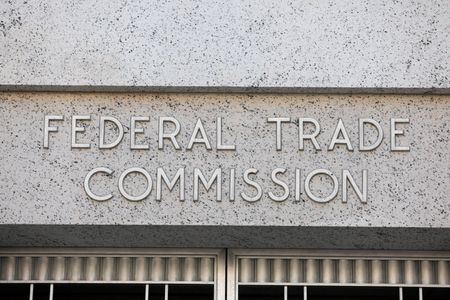By Jody Godoy
WASHINGTON (Reuters) -The U.S. Federal Trade Commission sued Asbury Automotive Group on Friday, alleging that three of its dealerships in Texas charged Black and Latino customers higher prices than others and routinely added services to customers’ contracts without their consent.
Up to 75% of customers of Asbury’s David McDavid Ford dealership in Fort Worth, and Honda dealerships in Irving and Frisco, Texas, reported being charged without their permission for services such as protective coatings, service contracts and insurance, according to the FTC.
In some cases, customers had declined the services or been falsely told they were mandatory, while in others their permission was never sought, the FTC said.
The dealerships on average charged Black customers $298 more and Latino customers $214 more for the same add-on products than they did white customers who were not Latino, the FTC said.
Asbury said it rejects the allegation and will contest the lawsuit. It denied in a statement that minority customers were charged more for protection products than other customers.
The company said it verified through a Freedom of Information Act request that the FTC did not receive any consumer complaints about McDavid dealerships between 2019 and late spring of 2024.
“We will not allow the FTC to coerce fines from us or subject us to onerous requirements that negatively impact the car-buying experience for our customers, would not apply to others, and would place us at a competitive disadvantage in the industry,” CEO David Hult said in a statement.
Asbury operates more than 155 dealerships in more than a dozen states.
All five FTC commissioners voted to authorize the case against Asbury, although Andrew Ferguson, one of two Republican commissioners, took issue with using a separate case settled on Thursday against a different dealership to classify discrimination as an unfair business practice.
FTC Chair Lina Khan and the Democratic commissioners said on Thursday that exempting discriminatory conduct from unfair practices would give companies that discriminate a pass.
(Reporting by Kanishka Singh in Washington, Jody Godoy in New York and Urvi Dugar ; editing by Jonathan Oatis and Leslie Adler)





